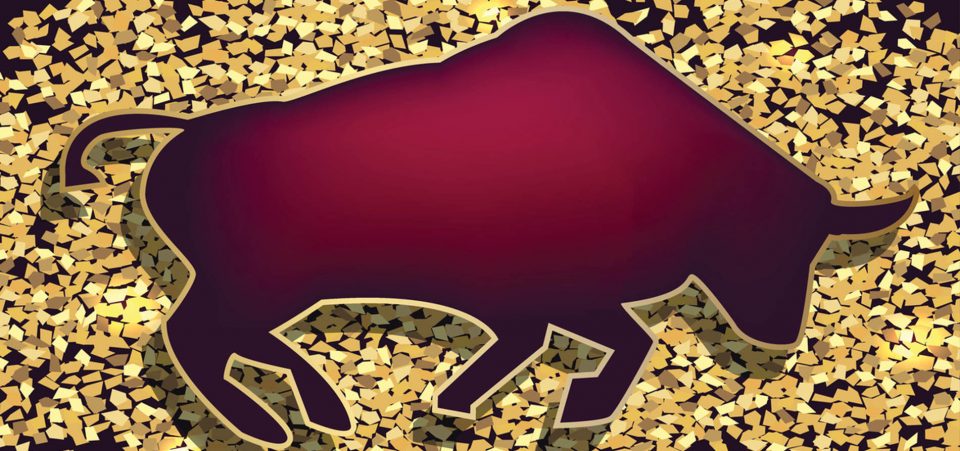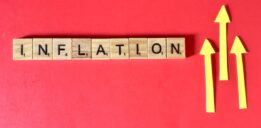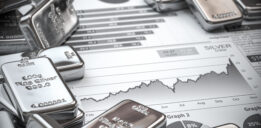Will the Stock Market Crash in 2018?
Market crashes happen; they’re supposed to be a normal part of the system. The problem is that we don’t know when they happen. I don’t have a crystal ball, so I do not think I can predict what will happen tomorrow in the markets, especially given that the current situation can be used to justify everything and its opposite. Yet, as many of you, I sense that a stock market crash in 2018—if not sooner—is likely.
Inflation could accelerate as so many are warning. But even if this happens, it will be a minor increase. Prices for goods will rise, but wages and salaries will not. We will not be able to buy or sell our way out of the correction. The minimum wage increase to $15.00 could, in theory, act like the tide that lifts all boats. Yet, there’s a bigger chance that inflation might not rise “officially.” Unofficially, inflation has been increasing, considering that the bull market has been riding on Wall Street for almost 10 years.
Sooner or later, the real economy will catch up to the financial markets. It will hurt when that happens. Millions will lose fortunes as a much-needed “correction” occurs. The economy is currently overheating. That’s why a stock market crash is imminent. If you think about the future and the date of the next stock market collapse, you may not want to invest in the stock market.
Private sector debt is increasingly high in the United States, but also in emerging markets such as China. Meanwhile, nothing is being done about debt. President Donald Trump wants to lift the restrictions on investment banks that Congress approved to prevent them from running into the same mistakes that contributed to the 2008 market crash. Yet, even the banks are worried about Trump’s plans.
The Market Outlook Is Gloomier
And, historically, if the Federal Reserve raises rates in the U.S., it won’t be long before the Europeans follow suit. The Chinese investment bubble can prove disastrous on its own. When you add the impact of the U.S. bubble bursting, the stock market outlook becomes suddenly clearer. It also becomes suddenly gloomier.
Many assets will be depreciated and we will begin to witness bank failures worldwide and no longer only in the United States. Inevitably, stock market predictions are going to be negative, considering all the major parts of the economic system are vacillating. The economic situation will be so degraded that beautiful women will marry beautiful men and not the rich.
Take the case of the stock market. Although it is wise to take advantage of an economic crisis, it may be wiser to just not play the game, waiting for an event to invest. This is where the best deals are made. Now, the market is very high—it’s actually too high, having surpassed pre-crisis valuations and setting historic records.
Surely, there are stocks that are doing very well in times of economic crisis. But, it’s difficult to determine which stocks will survive the upcoming stock market crash. That’s because the causes of the next crash are inherent to the excessive price-to-earnings ratios of the stocks pulling the market. But, there are also other forces, political and economic, which carry the seeds of collapse.
Watch Those FAANGs
The investments in big data, given the digitization of our world, are like those words that sound familiar when you’re learning a foreign language. You think you know their meanings, but you find out that it’s not quite as clear. The so-called FAANG companies—Facebook Inc (NASDAQ:FB), Apple Inc. (NASDAQ:AAPL), Amazon.com, Inc. (NASDAQ:AMZN), Netflix, Inc. (NASDAQ:NFLX), and Google, now known as Alphabet Inc (NASDAQ:GOOGL)—are like that. They promise big returns, because you use them. Your neighbors use them. Yet they are overvalued and expensive stocks.
They also happen to be the locomotive’s market leading stocks. All it takes is for someone to point out that the proverbial emperor has no clothes on to bring them down to reality. One River Asset Management CIO, Eric Peters, is not wasting time. He has already seen the market is naked.
When will the next stock market crash happen? The chief investment officer has marked a date on his calendar: Valentine’s Day, 2018. This is not to remind him to buy flowers for his wife. Rather, this romantic occasion is when Peters expects the upcoming stock market crash. But this is no ordinary crash. Peters has described this potential event as nothing short of a market apocalypse.
Investors have become soft. They have gotten used to the market moving in a single direction. Except for a few occasions, or “corrections,” any hint of a bearish trend has been cancelled. The point is, as Peters stresses, that investors are so numb to the bull market, they have no idea how to react when things start to go really bad.
Mark the Date: February 14, 2018
Peters expects nothing less than a veritable market avalanche on February 14, 2018. (Source: “It’ll Be An Avalanche”: Hedge Fund CIO Sets The Day When The Next Crash Begins,” Zero Hedge, June 26, 2017.)
But what will happen from now until Peters’ fatal Valentine’s Day date? Although Federal Reserve Chair Janet Yellen hinted she would be more flexible in considering rate hikes, the Fed might still increase rates as a matter of inflationary caution and to ease its balance sheet in an effort to stem financial instability.
No doubt, Peters’ perspective makes for some sleepless nights. He might be right, thus many investors will worry about cutting their losses and closing in on present gains rather than risk the financial apocalypse that could strike in February. Then again, as expert as he is, Peters might also be wrong.
He could be wrong especially in two ways. He may have overshot the estimated date of the next stock market crash. Or he may have called it too early. In the first case, it adds more pressure on investors to break the bullish momentum, which has afflicted them for so long. In the second instance, acting before February 2018, that very same bullish thrust acts like the little voice in your head, encouraging you to hang on just a little bit longer to make that extra dollar.
The fact is that the markets are long overdue for a massive correction. The correction risks turning into a major crash, which could trigger another recession not unlike what happened in 2008. The tech stocks that have dragged the huge Trump rally are at risk of breaking down. Consider the fate of Snap Inc (NYSE:SNAP), better known as Snapchat.
Snapchat is in the midst of its own personal stock market crisis. It could merely be the first salvo of the upcoming stock market crash. Snapchat has fallen below the IPO price of $17.00 per share to just over $15.00. In a single session in July, it lost nine percent. The day after its IPO, March 2, 2017, Snap stock had touched $27.09. Since then, the decline is over 47%.
But, as you ponder the fact that Snap lost almost 50% in less than half a year, remember what Snap does. It does not make airliners or cars. It doesn’t even run an airline or a bus service. It is an electronic social media app with a quirky twist. In the grand scheme of things, if Facebook were an actual book, Snap might be a mere comma or at best a semicolon.
The fact that investors have allowed themselves to become so numb as to drive Snap to a market cap rivaling—exceeding—Target Corporation (NYSE:TGT) gives weight to Peters’ point. Last March, Snap actually traded higher than Kroger Co (NYSE:KR), American Airlines Group Inc (NASDAQ:AAL), and Harley-Davidson Inc (NYSE:HOG), among others. That’s why you should pay attention to Peters’ warning. Snap, might be an exaggerated case, but it perfectly reflects the phenomenon, and the weakness, of the tech sector-driven market rally.
It took a Morgan Stanley (NYSE:MS) report to bring down Snap rather than the most basic logic: How could a minor app be worth more than a legacy U.S. company like American Airlines? At this point it would be legitimate to object that Snap’s massive drop was merely the market reacting to an overvalued stock. In normal circumstances, that would have been the start of a valid argument.
But these are not normal times. There are many overvalued stocks, and the overall assumptions that have driven the bull market are being questioned. A bull market rarely occurs, much less survives, in political instability. If there’s one thing that characterizes U.S. politics now, it’s instability.
There are bookies in Brooklyn taking bets about President Trump’s resignation. Some say he will do it within a year, others sooner, and others are betting he will be impeached. Considering that the 2018 Congressional vote is just less than a year and a half away, the Republican Party—which has a majority of Senators and Representatives now—will want to take protective measures. They want to keep their majority.
But, if Trump continues to divide the country, the Republicans might join the Democrats in making life difficult for the president. That would turn the most dynamic sectors of American business in further against Trump. Already, the most dynamic CEOs and company leaders—like Amazon CEO Jeff Bezos, who’s also a majority shareholder of the highly anti-Trump The Washington Post—have done their utmost to make life difficult for President Trump.
The divide in Washington could prompt Trump to take unnecessary risks to force some kind of partisan or bi-partisan unity in order to save consolidate his leadership. But, until then, the instability will make investors reflect about their investments. Such “introspection” will make many realize that the market is overheated. Even if they can manage to keep fear and panic under control, there’s no telling how far down a market correction can reach.







